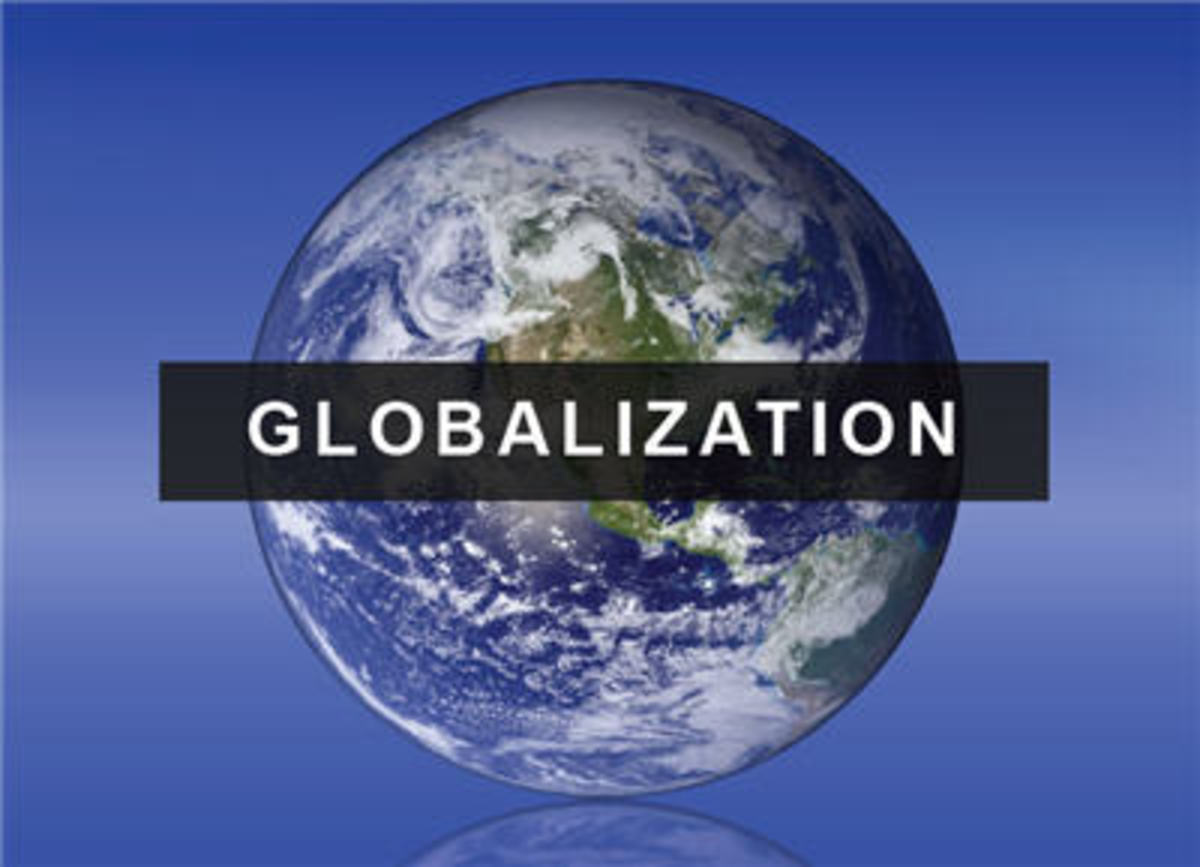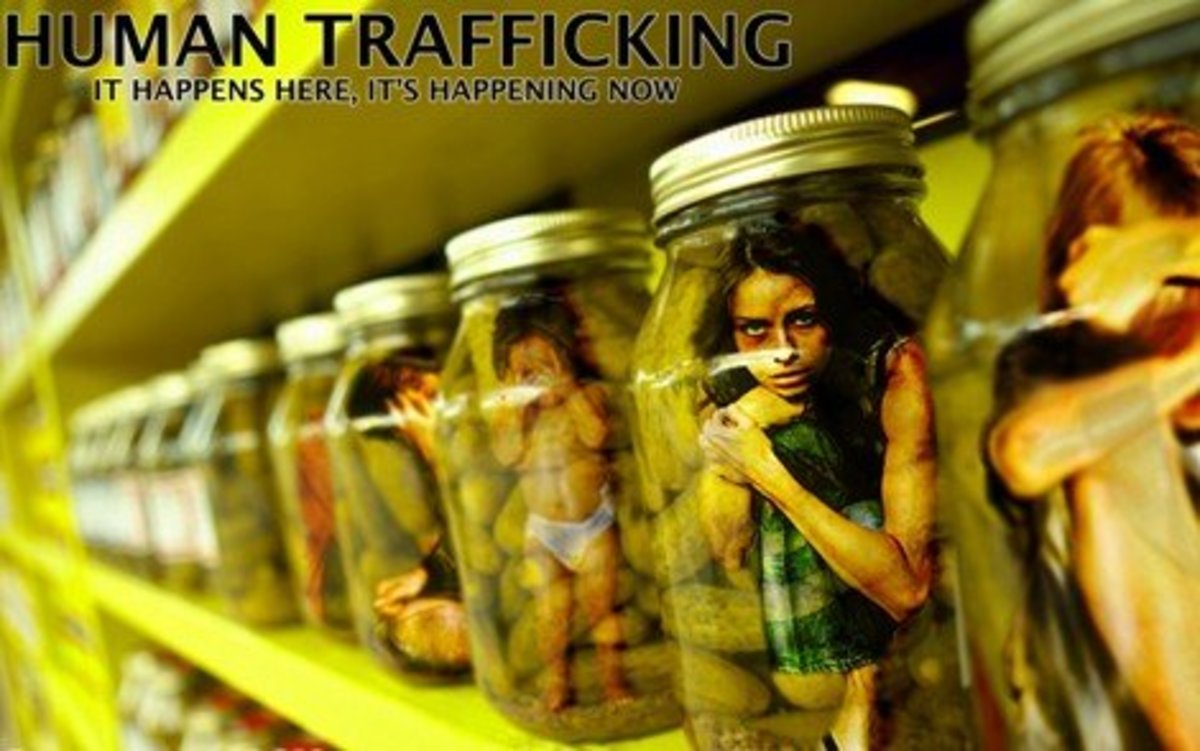International Relations and Human Rights 3: Sex Trafficking (Socio-economic Drivers of Sex Trafficking)

Human trafficking is a modern form of slavery. Usually, individuals particularly women and children are trafficked for sex trade, thus the term sex trafficking.
The United Nations Protocol to Prevent, Suppress and Punish Trafficking in Persons Especially Women and Children, defines [sex] trafficking as: “The recruitment, transportation, transfer, harboring or receipt of persons, by means of threat or use of force or other vulnerability or of the giving or receiving of payments or benefits to achieve the consent of a person having control over another person, for the purpose of exploitation” (McGinnis, 2004).
In May 2010, Rodney D. King, also known as “Shadow” plead guilty before the U.S. District Court for the District of Hawaii to federal sex trafficking charges. According to the Justice Department, Shadow would target vulnerable women and minors and forced them into prostitution through a variety of terrible means via force, fraud, and or coercion (PR Newswire, 2010). In UK, the situation is not any better. The Ryder Cup golf tournament is expected to increase sex trafficking in Newport as government approved the legitimacy of additional brothels in the months leading to big sporting events such as the football world cup and 2004 Olympics through issuance of license (BBC News, 2010).
In developing countries, the picture is much grim. In China, North Korean women are sold like imported meat to Chinese men who prefer to have casual sex than marriage. North Korean women are shipped to China with the promise of working for tech factories but ends up being part of the sex trade through stripping on internet webcasts and or forced to prostitution while some are forced into marriage. These North Koreans are pitted in the middle of sex trafficking with no hope—if they are deported back to their home country in grounds of prostitution, they face a more severe punishment (Kloer, 2010).
Cambodia is one of the leading tourist destinations for pedophiles who wants to have sex with children—particularly with virgins as young as 6-8 of age. Asian men who visit Cambodia for this purpose, more specifically the South Koreans and Chinese believe that having sex with a minor would give them good health, long life, good luck, and a ‘vaccine’ that would make them susceptible to HIV/ AIDS.
In India, parents, relatives or guardians of young children living in the slums or rural areas are tricked to giving up their child particularly the young girls since they are regarded as a liability to the family. These young girls are then sold to brothels and pimps in Delhi.
In Sri Lanka, the situation is no better; there is a wide-range proliferation of sex trafficking of children for pornography, and other sexual purposes such as in magazines, websites, and chat rooms that makes Sri Lanka a haven for foreign sex offenders (Eads, 2009).
Socio-economic Drivers of Sex Trafficking
Sex trafficking is a global, social dilemma that affects the wealthy and industrialized nation as well as the impoverished and developing countries. The difference though is that human trafficking is more rampant on developing countries due to various socio-economic factors. However, it could also be that the sexually perverted and pedophiles live on wealthy countries and they prey on children and women from develop countries as is the cases in developing countries in Asia where sexually perverted tourists from all over the world flock to take part of the sex trade.
Pornography
A very obvious driver for sex trafficking and sex trade is pornography. Very graphic depiction of naked women and children that rouse and encourage sexually deviant behavior. Pornography comes in many forms—it could come as print media, film, and internet. Pornography fuels the demand for exploitation. The Department of Justice and the National Center for Missing and Exploited Children both identified that pornography does add to the serious problem of sex trafficking since most traffickers that were apprehended have in their possession film equipments and cameras to create and sell pornography. Furthermore, traffickers are looking for young girls and boys to ‘star’ on their films. Thus, they prey on countries where children are vulnerable and generally unprotected (McGinnis, 2004).
High Demand for Prostitution and Child Sex
The economics’ Law of Supply and Demand suggests that as long as there is a need for a good or service, there would be something that would fuel the trade—thus a certain trade or industry persist and even flourish. Same goes with Sex trafficking. As long as there is high demand for prostitution, Sex trafficking would persist. Furthermore, research studies had shown that legalizing prostitution only fuels sex trafficking rather than decreasing its effect. Because, when prostitution is legalized, there are government-sanctioned guidelines such as prices for sexual services, medical examinations, brothel rent, fees, et cetera that 'legitimize' the industry. However, in an attempt to make business more profitable and go around these ‘business fees’, the black market provides cheaper fees for the same services and with no age limit. Moreover, researches have also suggested that in countries where prostitution had been legalized, there are about three to ten times as many non registered prostitute compared to the registered prostitute. Most of the undocumented are victims of sex trafficking (McGinnis, 2004).
Indifference among law makers and enforcers
Despite the many laws than ban and or prohibit sex trafficking and sex trade, there is a very big gap between the policy and the actual implementation. For case in point, most Asian countries find it unlawful to have sex with a minor under the age of 16; same with employing anyone under the age of 18 to engage in the sex trade. However, with all these laws in place, there is no single country where prosecution of traffickers had made any significant impact to reduce sex trafficking (Kloer, 2010). Furthermore, most of the time it is not the traffickers that the law enforcers would arrest during brothel raids but the prostitutes. Thus, the impact becomes minimal because the law enforcers could not get to the root cause of the problem—cracking down on the network of human traffickers.
Widespread corruption
Another cause of the inefficacy of laws and its implementation is the widespread corruption and red tape. This makes the crackdown on international human trafficking network very difficult. Apprehended criminals—traffickers and sex offenders could easily buy off law enforcers, police, judges, and even law makers. Sometimes they even buy off the victim’s family or silence the victim through monetary compensation to prevent the case from developing. According to Eads (2009), in some cases, criminal bosses would even pay police and law enforcers more than what they receive from the government thus making trafficking much flexible because they have the police protection. For case in point, Cambodia, have been for several years become a popular tourist destination for wealthier Asian countries—such as South Koreans and Chinese men who wants to have sex with children. Despite the directive of Cambodian government that anyone caught doing so would face 20 years of imprisonment, sex trade and trafficking continue to flourish because foreigners could easily buy-off police. Police are easily corrupted because this becomes a quick way to make big money—foreigners would pay up to $10,000 to buy-off a judge.
Poverty
Lastly, the underlying cause could be traced back to poverty. Though sex trafficking also occur in highly-develop nations, compared to developing countries, there is minimal occurrence. This is because there are better opportunities and women and children are better educated. Thus, those who are lured to sex trafficking are runaway girls, orphans, or delinquents. Sex trafficking and sex trade proliferate in developing countries wherein there is wide-spread poverty. Some women see this as an opportunity to make a living, while some exploit the innocent, others the vulnerable economic status of family through fraud, coercion, or force—i.e. debt to be settled. In countries where women are still treated as second class citizens, there is not much opportunity for education and economic opportunities. It is this lack of education that makes them vulnerable to traffickers who wants to take advantage of them—sometimes a promise of a decent job in the city, an opportunity abroad, or pure intimidation.
To better address the issue of sex trafficking and sex trade, law makers and non government organizations must look at the root cause of the problem—which is poverty. By addressing poverty, government could provide a better fighting chance of protecting their women and children from these unscrupulous individuals who find business in trafficking people.
References
BBC News (2010), ‘Sex Trafficking’ Warning for Ryder Cup Golf in Newport, 28 May 2010, http://news.bbc.co.uk/2/hi/uk_news/wales/10148833.stm
Eads, Brian (2009), Suffer the Children, Reader’s Digest, 28 May 2010, http://www.rdasia.com/suffer_the_children.
Kloer, Amanda (2010), Buy a North Korean Woman for Less Than a Used Car, End Human Trafficking, 28 May 2010, http://humantrafficking.change.org/blog/view/buy_a_north_korean_woman_for_less_than_a_used_car.
PR Newswire (2010), Hawaii Man Pleads Guilty to Sex Trafficking Charges, Washington Business Journal, 28 May 2010, http://www.bizjournals.com/washington/prnewswire/press_releases/national/District_of_Columbia/2010/05/25/DC10962.
McGinnis, Elaine (2004), The Horrifying Reality of Sex Trafficking, Beverly Lahaye Institute, 28 May 2010,
http://www.beverlylahayeinstitute.org/articledisplay.asp?id=7014&department=BLI&categoryid=reports








